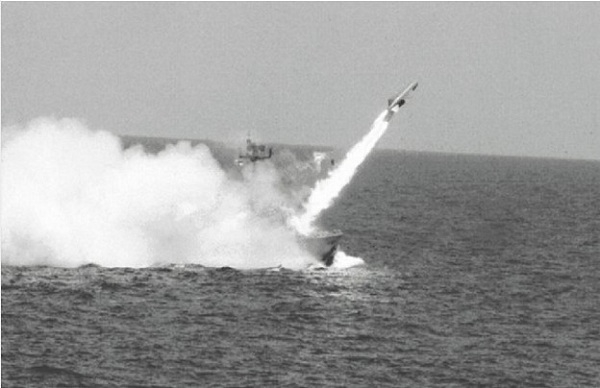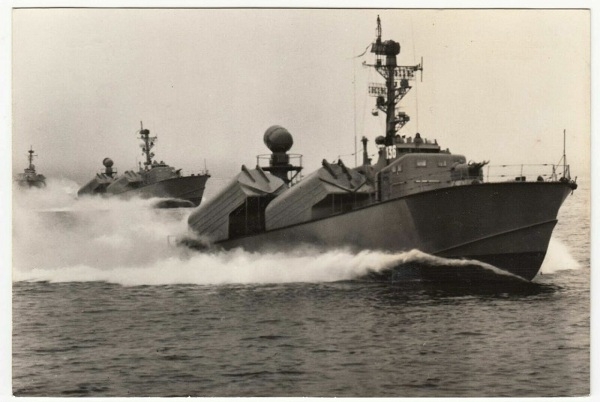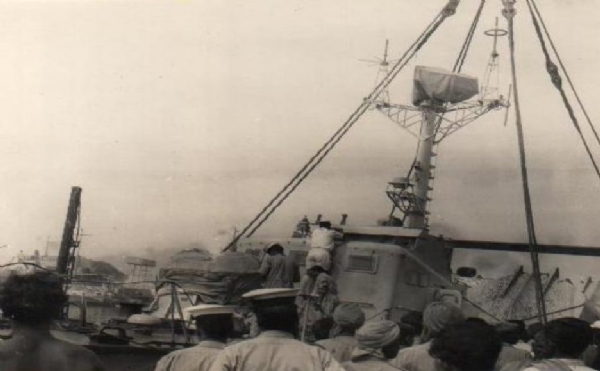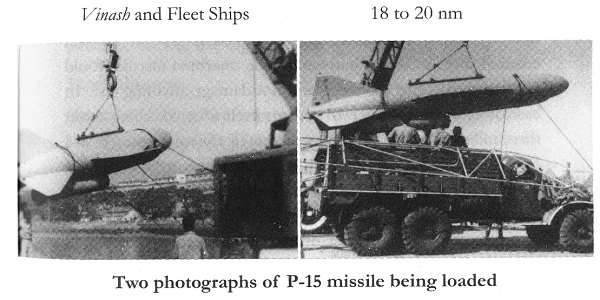When Indian Navy turned the sides by destroying Karachi Port in 1971 Indo-Pak war
04 Dec 2021 10:16:35
Shaṁ No Varunaḥ
'May the Lord of Water be auspicious unto us'
Indian Navy Day is celebrated on December 4 in commemoration of Operation Trident and Operation Python, the attacks launched by the Indian Navy missile boats on Karachi harbour during 1971's Indo-Pakistan war. The operations were one of the wherein the navy showcased bravery and valour that symbolises the Indian Navy.

Operation Trident
The operation was codenamed and carried out at the intervening night of December 4 and 5 that caused severe damages to the harbour of Karachi along with vessels parked there amidst the ongoing Indo-Pak 1971 war. Following Pakistani attack on Indian air bases on the evening of 03 Dec 71, the Indian Navy was ordered to dispatch three Vidyut-class missile boats - INS Nipat, INS Nirghat and INS Veer - each armed with four Soviet made SS-N-2B Styx surface-to-surface missiles with a range of 40 nautical miles (74 km; 46 mi), two Arnala-class anti-submarine corvettes - INS Kiltan and INS Katchall - along with a fleet tanker, INS Poshak. The group was under the command of Commander Babru Bhan Yadav, the commanding officer of the 25th Missile Boat Squadron of the Western Naval Command.

As planned, on 4 December, the Indian Navy ran towards the Karachi Harbour and fired its first Styx missile at PNS Khaibar, a Pakistani Battle-class destroyer. An emergency signal that read: "Enemy aircraft attacked in position 020 FF 20. No. 1 boiler hit. Ship stopped", was sent to Pakistan Naval Headquarters (PNHQ) but given the intelligence of the Pakistan, the signal contained the wrong coordinates of the ship's position. This delayed rescue teams from reaching its location.

Following, the Indian Navy missile boats carried out successful attacks resulting in sinking of Minesweeper Muhafiz and MV Venus Challenger as well as destruction of Kiamari oil fields. As a result, in a 90-minute operation, Pakistan lost a minesweeper, a destroyer, a cargo vessel carrying ammunition, and fuel storage tanks in Karachi. Along with this, another destroyer was also seriously damaged and eventually discarded. Following this assault, the Karachi harbour was rendered non-operational due to the severe damages caused by the Indian assault. On the other hand, India did not suffered a single loss in the operation.
“With no casualties on the Indian side, this operation was considered to be one of the most successful in modern naval history post-World War II.”
Operation Python
The Indian Navy also launched another naval attack on Karachi, Operation Python, a follow-up to Operation Trident. After the first attack during Operation Trident on the Port of Karachi, Pakistan enhanced its aerial surveillance of its coast as the presence of large Indian Navy ships gave the impression that another attack was being planned. Pakistani warships attempted to outsmart the Indian Navy by mingling with merchant shipping.
However, to counter these moves, Operation Python was launched on the night of 8/9 December 1971. A strike group consisting of a small strike group consisting of the missile boat INS Vinash, equipped with four Styx missiles, and two multipurpose frigates, INS Talwar and INS Trishul attacked the group of ships off the coast of Karachi. The Indian Navy's official historian, Vice Admiral Hiranandani in his book Transition to Triumph, mentioned that while the group approached Karachi, Trishul's electronic surveillance revealed that the radar there had stopped rotating and was directed straight at the group, confirming that it had been detected.

While India suffered no losses, Pakistani fleet tanker PNS Dacca was damaged beyond repair, and the Kemari Oil Storage facility was lost. Two other foreign ships stationed in Karachi were also sunk during the attack.
While these operations were being carried out, it was known that due to the Indian Air Force attacks on Karachi's fuel and ammunition depots, more than fifty percent of the total fuel requirement of the Karachi zone was reported to have been destroyed. The result was a crippling economic blow to Pakistan. The damage was estimated to be worth $3 billion, with most of the oil reserves and ammunition warehouses and workshops destroyed. The Pakistan Air Force was also affected by the loss of fuel.
“Lieutenant Commander Vijai Jerath, the commanding officer of Vinash, was awarded the Vir Chakra for this operation.”
The operations proved to be a key milestone in India’s victory over Pakistan in the 1971 war. It put paid to the Pakistani machinations of sending vessels in the Bay of Bengal waters to crush the Bangladesh liberation movement. With the port dysfunctional and vessels sunk, Pakistani Navy could not launch an operation to aid their beleaguered Army that was fighting a futile war in Bangladesh. Subsequently, the war ended in a decisive Indian victory with about 93000 Pakistani prisoners of war surrendering to the Indian Armed Forces on December 16, 1971.
